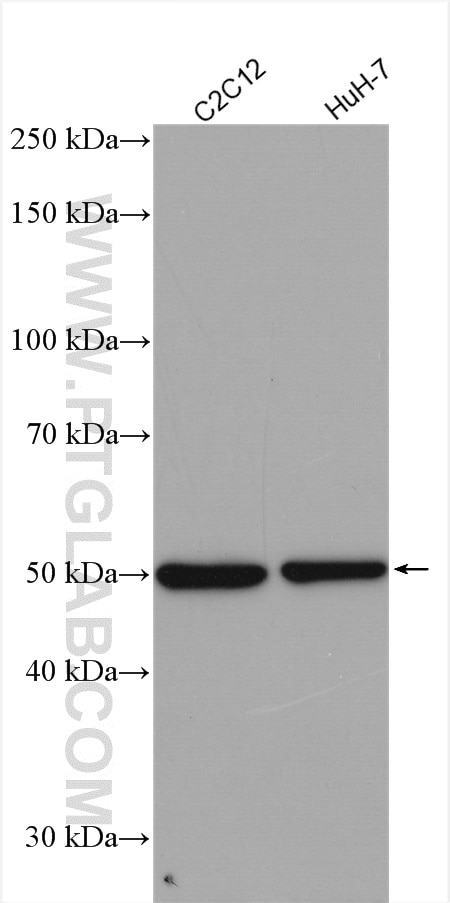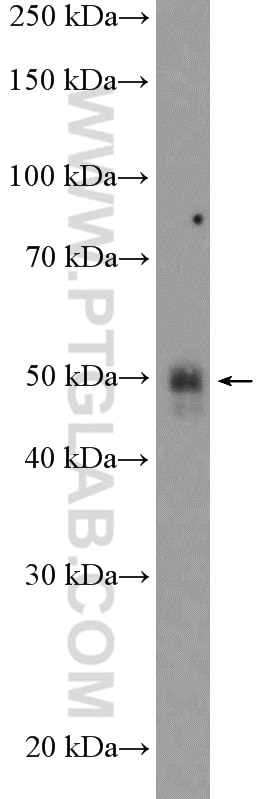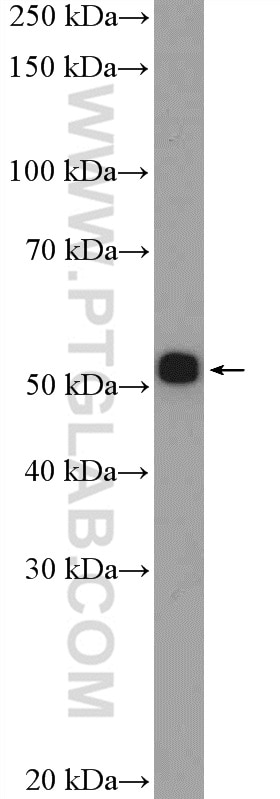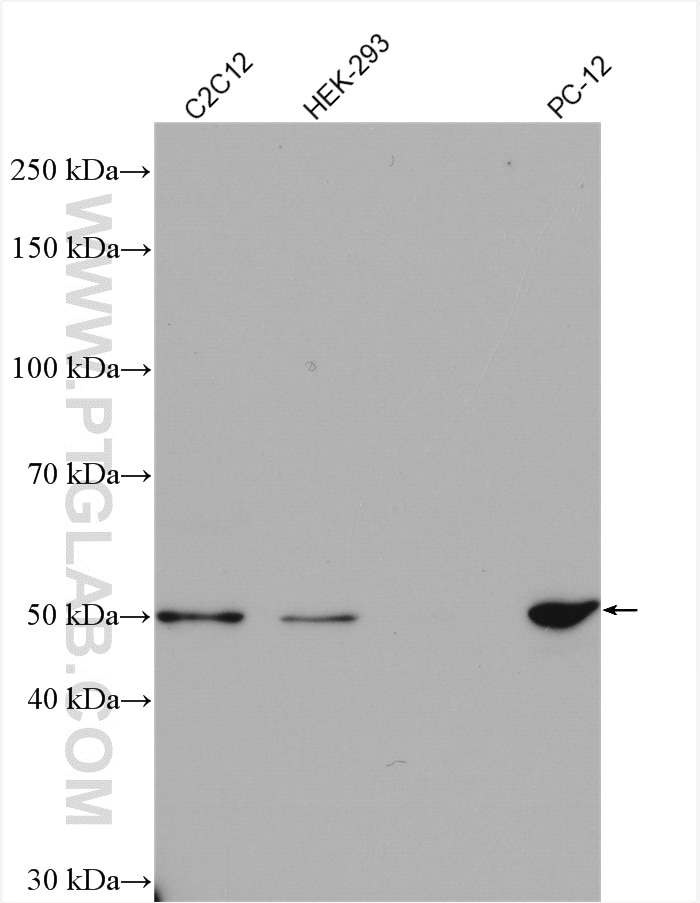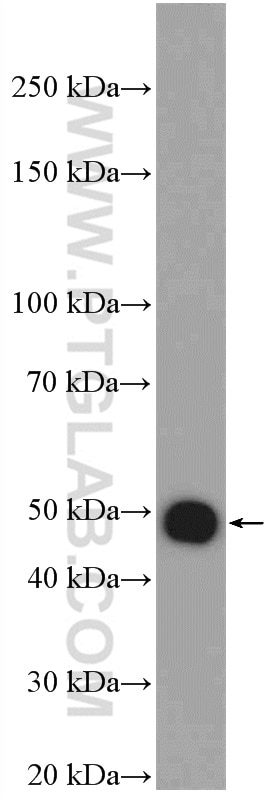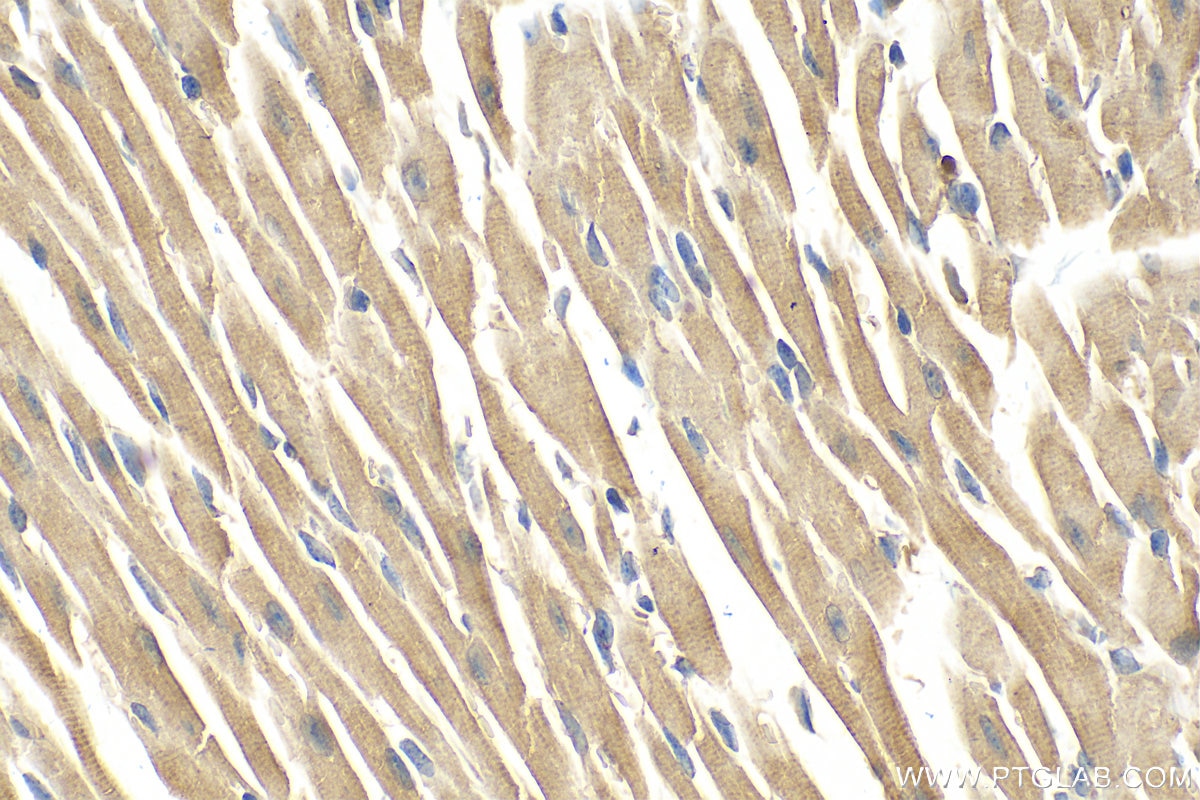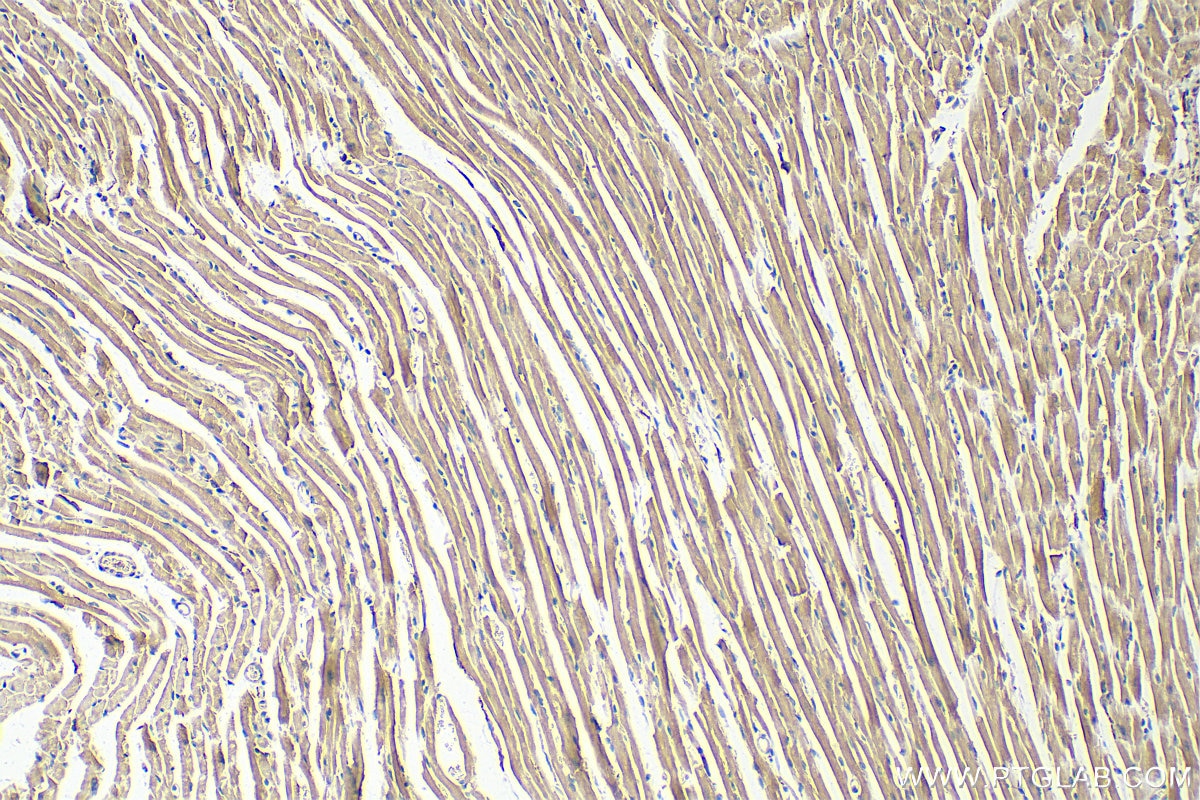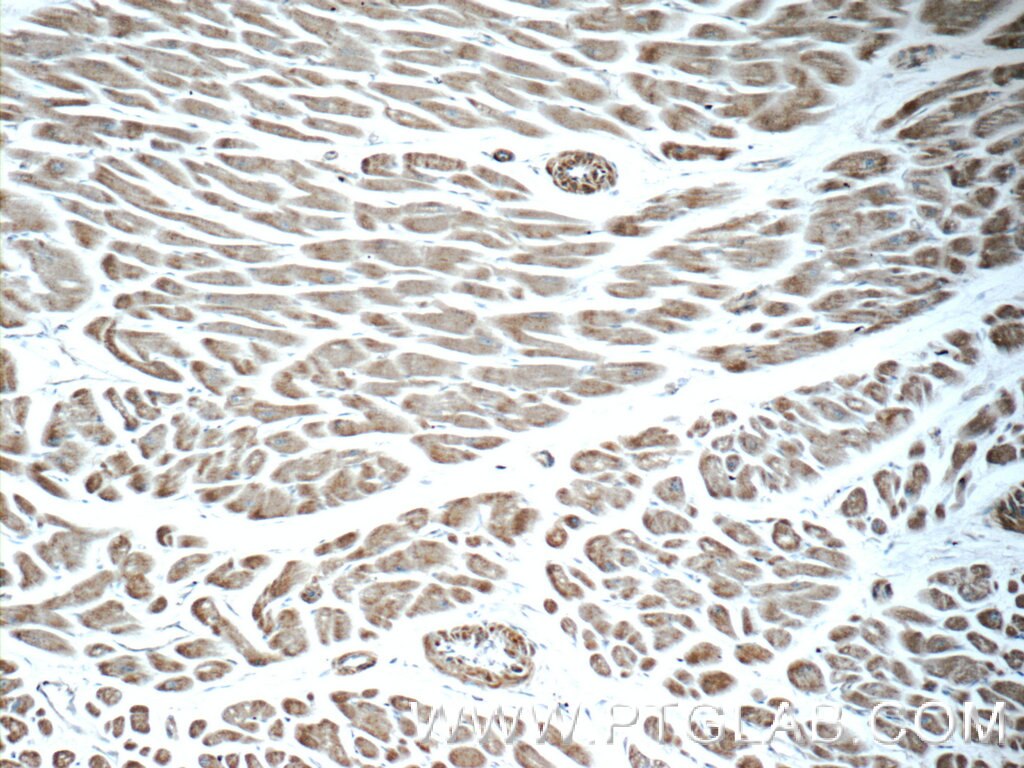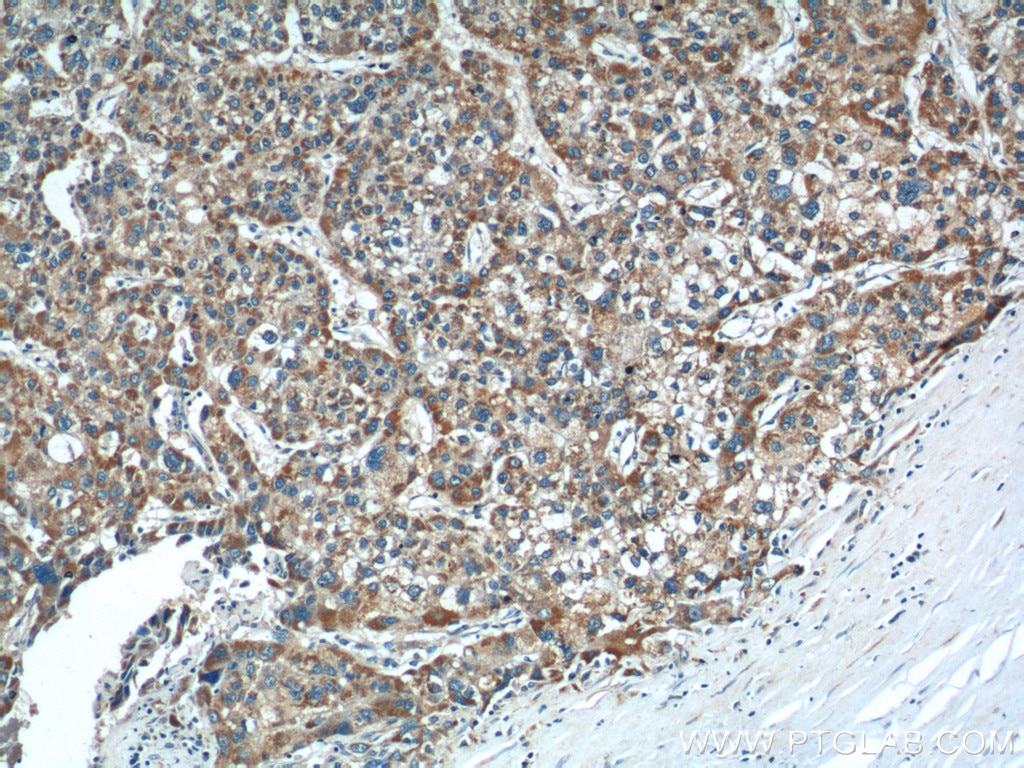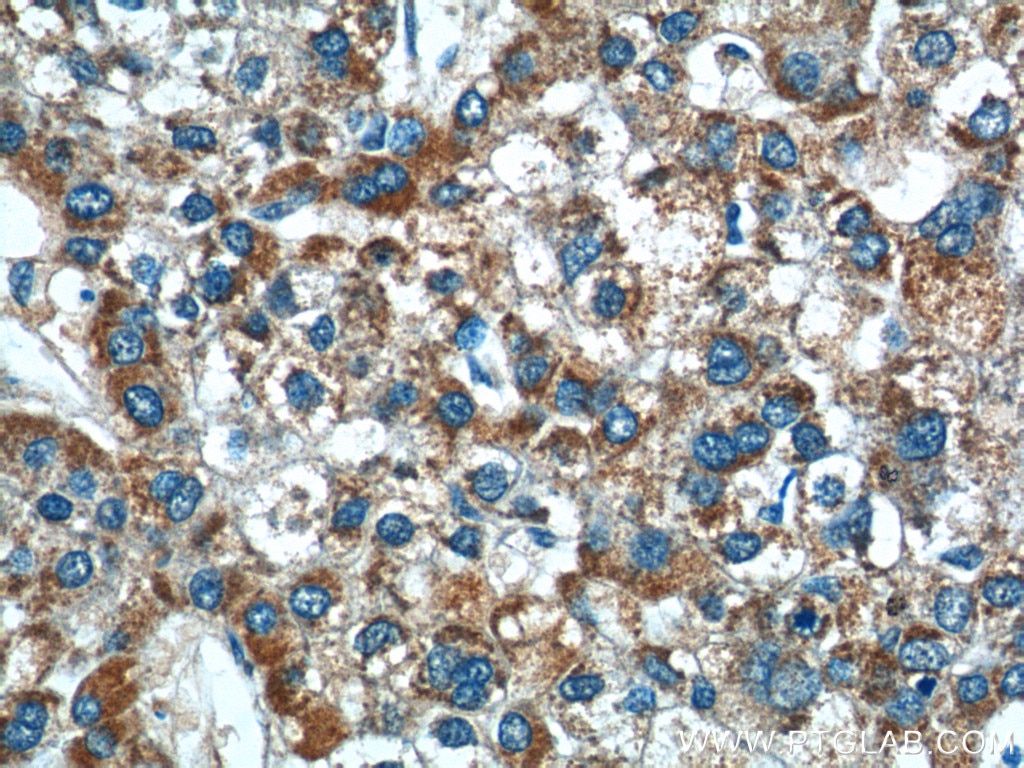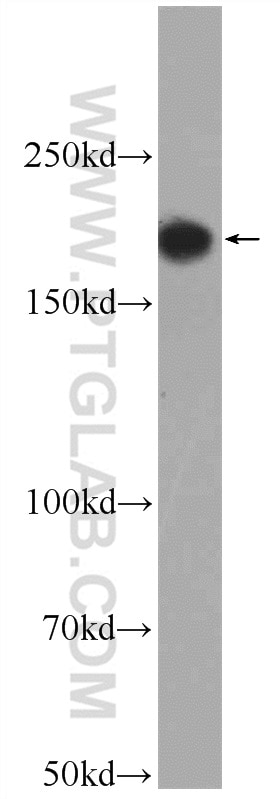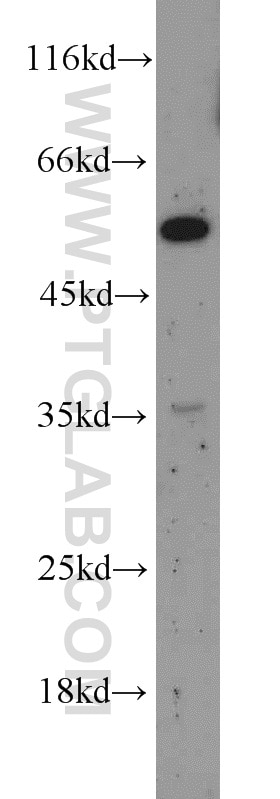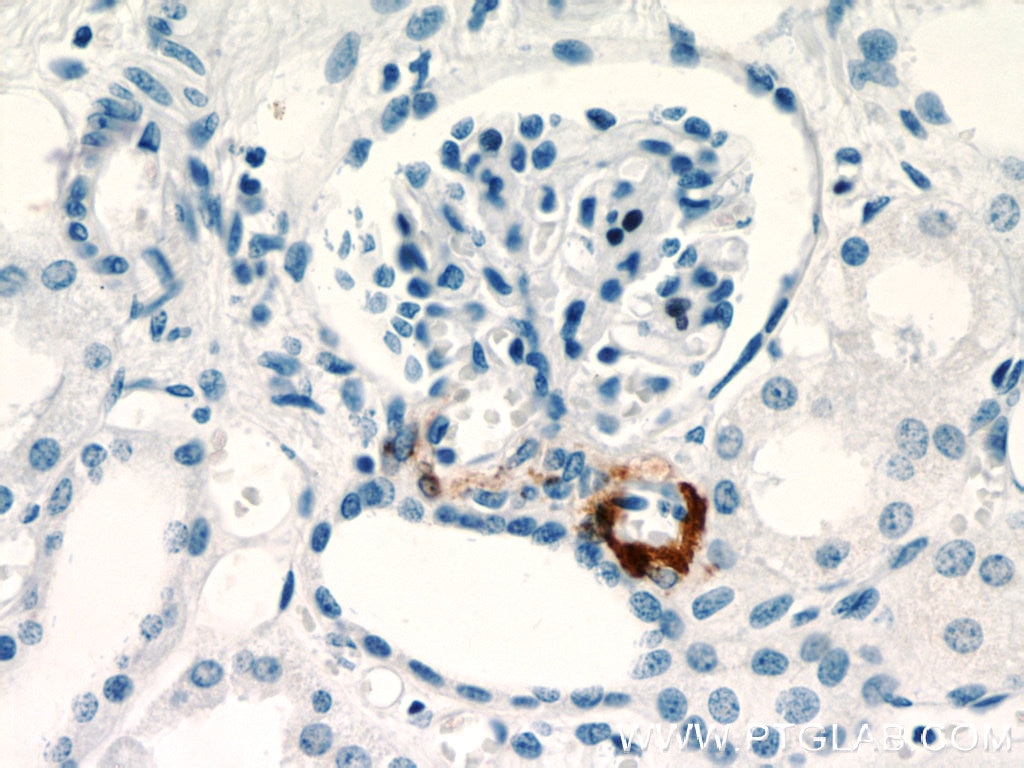- Featured Product
- KD/KO Validated
AGTR1 Polyklonaler Antikörper
AGTR1 Polyklonal Antikörper für IHC, WB, ELISA
Wirt / Isotyp
Kaninchen / IgG
Getestete Reaktivität
human, Maus, Ratte und mehr (1)
Anwendung
WB, IP, IHC, IF, CoIP, ELISA
Konjugation
Unkonjugiert
Kat-Nr. : 25343-1-AP
Synonyme
Galerie der Validierungsdaten
Geprüfte Anwendungen
| Erfolgreiche Detektion in WB | C2C12-Zellen, HEK-293-Zellen, HuH-7-Zellen, Mausherzgewebe, Mausnierengewebe, PC-12-Zellen |
| Erfolgreiche Detektion in IHC | Mausherzgewebe, humanes Herzgewebe, humanes Leberkarzinomgewebe Hinweis: Antigendemaskierung mit TE-Puffer pH 9,0 empfohlen. (*) Wahlweise kann die Antigendemaskierung auch mit Citratpuffer pH 6,0 erfolgen. |
Empfohlene Verdünnung
| Anwendung | Verdünnung |
|---|---|
| Western Blot (WB) | WB : 1:500-1:1000 |
| Immunhistochemie (IHC) | IHC : 1:50-1:500 |
| It is recommended that this reagent should be titrated in each testing system to obtain optimal results. | |
| Sample-dependent, check data in validation data gallery | |
Veröffentlichte Anwendungen
| KD/KO | See 1 publications below |
| WB | See 39 publications below |
| IHC | See 12 publications below |
| IF | See 7 publications below |
| IP | See 1 publications below |
| CoIP | See 2 publications below |
Produktinformation
25343-1-AP bindet in WB, IP, IHC, IF, CoIP, ELISA AGTR1 und zeigt Reaktivität mit human, Maus, Ratten
| Getestete Reaktivität | human, Maus, Ratte |
| In Publikationen genannte Reaktivität | human, Maus, Ratte, Zebrafisch |
| Wirt / Isotyp | Kaninchen / IgG |
| Klonalität | Polyklonal |
| Typ | Antikörper |
| Immunogen | AGTR1 fusion protein Ag14461 |
| Vollständiger Name | angiotensin II receptor, type 1 |
| Berechnetes Molekulargewicht | 359 aa, 41 kDa |
| Beobachtetes Molekulargewicht | 50 kDa |
| GenBank-Zugangsnummer | BC022447 |
| Gene symbol | AGTR1 |
| Gene ID (NCBI) | 185 |
| Konjugation | Unkonjugiert |
| Form | Liquid |
| Reinigungsmethode | Antigen-Affinitätsreinigung |
| Lagerungspuffer | PBS mit 0.02% Natriumazid und 50% Glycerin pH 7.3. |
| Lagerungsbedingungen | Bei -20°C lagern. Nach dem Versand ein Jahr lang stabil Aliquotieren ist bei -20oC Lagerung nicht notwendig. 20ul Größen enthalten 0,1% BSA. |
Hintergrundinformationen
Angiotensin II (Ang II), the main effector molecule of the renin-angiotensin system, exerts its actions mainly via interaction with type-1 angiotensin II receptor (AGTR1, also named AT1R), thereby contributing to blood pressure regulation. AGTR1 mediates its action by association with G proteins that activate a phosphatidylinositol-calcium second messenger system. By regulating vascular tone, cardiovascular function, and salt and water homeostasis, AGTR1 exerts an indispensable physiological role (PMID: 21600887). AGTR1 has been implicated in diverse aspects of human disease, from the regulation of blood pressure and cardiovascular homeostasis to cancer progression (PMID: 26975580).
Protokolle
| Produktspezifische Protokolle | |
|---|---|
| WB protocol for AGTR1 antibody 25343-1-AP | Protokoll herunterladen |
| IHC protocol for AGTR1 antibody 25343-1-AP | Protokoll herunterladen |
| Standard-Protokolle | |
|---|---|
| Klicken Sie hier, um unsere Standardprotokolle anzuzeigen |
Publikationen
| Species | Application | Title |
|---|---|---|
Cell Res Cartilage oligomeric matrix protein is an endogenous β-arrestin-2-selective allosteric modulator of AT1 receptor counteracting vascular injury. | ||
Aging Cell Activation of angiotensin-converting enzyme 2/angiotensin (1-7)/mas receptor axis triggers autophagy and suppresses microglia proinflammatory polarization via forkhead box class O1 signaling | ||
Biomaterials Inhibition of tumor-promoting stroma to enforce subsequently targeting AT1R on tumor cells by pathological inspired micelles. | ||
Redox Biol Vitamin D receptor activation regulates microglia polarization and oxidative stress in spontaneously hypertensive rats and angiotensin II-exposed microglial cells: Role of renin-angiotensin system. | ||
Elife A zebrafish screen reveals Renin-angiotensin system inhibitors as neuroprotective via mitochondrial restoration in dopamine neurons.
| ||
Int J Mol Sci Exercise Normalized the Hippocampal Renin-Angiotensin System and Restored Spatial Memory Function, Neurogenesis, and Blood-Brain Barrier Permeability in the 2K1C-Hypertensive Mouse. |
Rezensionen
The reviews below have been submitted by verified Proteintech customers who received an incentive forproviding their feedback.
FH Kazu (Verified Customer) (12-14-2022) | This antibody worked well on mouse optic nerve sections at optimized dilution of 1:100.
|
FH Wu (Verified Customer) (07-16-2021) | Works good for IHC assay
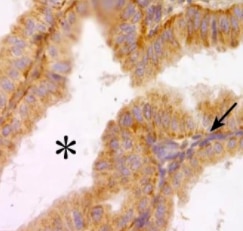 |
